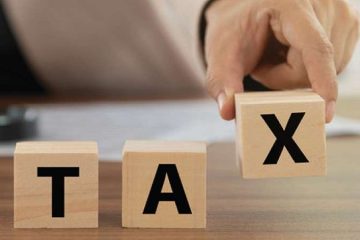The Second Schedule of the Income Tax Ordinance, 2001, serves as a critical roadmap for taxpayers in Pakistan seeking to understand and leverage tax exemptions and concessions. Part I of this schedule is particularly significant, offering a diverse array of exemptions from total income, designed to ease the tax burden on individuals and specific groups. This article provides an in-depth exploration of these exemptions, focusing on pensions, gratuity, and the mechanism of Approved Gratuity Funds (AGFs).
Understanding Exemptions for Pensions
The Second Schedule provides significant tax relief for various types of pension income, acknowledging the importance of retirement security:
-
Citizen’s Pension: Any pension income received by a Pakistani citizen from a former employer is exempt from income tax. This exemption applies to pensions received from all previous employers, except if the individual is still currently employed by the same organization while receiving the pension. If you receive multiple pensions, the exemption applies to the higher pension amount.
-
Public Service & Armed Forces Pensions: Recognizing the service of government and armed forces personnel, pensions granted for services rendered by members of the:
- Armed Forces of Pakistan
- Federal Government
- Provincial Governments and any pensions for families or dependents in case of death during service are entirely exempt from tax.
-
Commutation of Pension: Lump-sum payments received from the government or approved pension schemes in lieu of receiving future pension installments (commutation of pension) are also granted tax exemption.
Gratuity: Tax Considerations for Retirement Benefits
Gratuity, a lump-sum payment given to employees upon retirement, resignation, or in case of death, is a significant financial benefit. In Pakistan’s tax framework, gratuity is generally considered part of your taxable salary income. The Income Tax Ordinance, 2001, broadly defines “salary” to encompass various forms of employee remuneration, explicitly including “Gratuity.”
However, recognizing its nature as a retirement benefit, the Income Tax Ordinance, through the Second Schedule, provides specific tax exemptions for gratuity under certain conditions. These exemptions offer crucial tax relief on a portion or, in some cases, the entirety of the gratuity received.
Categories of Gratuity Tax Exemption:
The exemptions for gratuity are categorized primarily based on the source of the gratuity payment and the employee’s employment type:
-
Government Employees and Specific Entities: Employees of the:
- Government (Federal or Provincial)
- Local authorities
- Statutory bodies
- Corporations established by law
are granted full tax exemption on the entire gratuity amount received, provided it is in accordance with their respective service rules. This provision ensures a completely tax-free retirement benefit for these public sector employees.
-
Approved Gratuity Funds (AGFs): If your gratuity payment originates from a gratuity fund that is officially approved by the Commissioner of Income Tax under the rules outlined in Part III of the Sixth Schedule of the Income Tax Ordinance, the entire amount of gratuity is exempt from tax. These Approved Gratuity Funds (AGFs) are often established by larger organizations and are governed by strict regulations to guarantee fair and transparent distribution of gratuity benefits to employees. We will delve deeper into AGFs in a subsequent section.
-
Employer-Sponsored Gratuity Schemes (FBR Approved): For employees in the private sector, gratuity received under a scheme applicable to all employees of the organization and specifically approved by the Federal Board of Revenue (FBR) for tax purposes can receive partial tax exemption.
-
Other Employees (General Exemption): If you do not fall into any of the categories mentioned above (government employees, AGF recipients, or employees of FBR-approved schemes), you can still claim a partial tax exemption on your gratuity. For this general category, the exempt amount is limited to the lesser of:
- 50% of the total gratuity received, OR
- PKR 75,000.
This provides a degree of tax relief even for employees who may not be covered by formal employer-sponsored schemes or government employment.
Important Exclusions for Gratuity Exemptions:
It’s critical to note that the gratuity exemptions mentioned above are subject to specific exclusions:
- Gratuity Received Outside Pakistan: Gratuity payments received outside of Pakistan are not eligible for tax exemption under the Income Tax Ordinance.
- Company Directors (Non-Employee): If you are a company director but not considered a regular employee of the company (e.g., independent directors), you are not eligible for the gratuity exemption.
- Non-Resident Individuals: Gratuity income received by a non-resident taxpayer in Pakistan does not qualify for exemption.
- Multiple Gratuities from the Same Employer: The exemption typically applies only to the first gratuity payment received from a specific employer. If you have previously received a gratuity from the same or a different employer and are receiving another, you might not be eligible for exemption on subsequent payments. It’s crucial to verify specific circumstances with a tax advisor in case of multiple gratuity receipts.
Approved Gratuity Funds (AGFs)
Many companies in Pakistan establish gratuity schemes as a vital component of employee compensation, rewarding long-term commitment and service. To maximize tax efficiency and ensure regulatory compliance, these schemes are often structured as Approved Gratuity Funds (AGFs) under the Income Tax Ordinance, 2001.
Requirements for Approval as a Gratuity Fund:
To be recognized as an Approved Gratuity Fund (AGF) by the Commissioner of Income Tax and qualify for the associated tax benefits, a gratuity fund must adhere to specific criteria outlined in the Income Tax Ordinance:
-
Irrevocable Trust Structure: The fund must be legally established under an irrevocable trust. This trust must be explicitly linked to a trade or undertaking carried on within Pakistan. The irrevocable nature ensures that the funds are dedicated solely to employee gratuity benefits and cannot be accessed or withdrawn by the employer for other purposes.
-
Minimum Employee Coverage (Pakistan-Based Employees): To ensure the AGF primarily benefits employees contributing to the Pakistani economy, at least 90% of the employees within the trade or undertaking must be employed in Pakistan.
-
Sole Purpose: Gratuity Provision: The exclusive purpose of the fund must be to provide gratuity payments to employees under specific, defined circumstances. These generally include:
- Retirement of an employee at a specified age or later.
- Incapacitation of an employee before retirement age.
- Termination of employment after the employee has completed a minimum defined period of service as specified in the fund’s regulations.
- Death of an employee, with benefits payable to their designated dependents or legal heirs.
-
Employer Contribution: The employer company or organization conducting the trade or undertaking must be a contributor to the AGF. This demonstrates the employer’s financial commitment to the gratuity scheme and its long-term sustainability.
-
Benefits Payable Within Pakistan: All gratuity benefits and payments disbursed by the AGF must be payable within the geographical boundaries of Pakistan.
Application Process for AGF Approval:
The formal application for securing AGF approval is submitted to the Commissioner of Income Tax by the trustees legally appointed to manage the fund. The application must be accompanied by the following essential documents:
- Trust Deed (Copy): A certified copy of the legal instrument (Trust Deed) that formally establishes the irrevocable trust for the Gratuity Fund.
- Fund Rules (Two Copies): Two copies of the complete set of rules and regulations governing the Gratuity Fund. These rules detail the fund’s operations, administration, eligibility criteria, contribution mechanisms, and payment procedures.
- Audited Financial Accounts (Optional, but Recommended): If the Gratuity Fund has been operational for any period prior to the application for official approval, submitting two copies of its audited financial accounts for the preceding three years is generally required or highly recommended. This provides the Commissioner with a financial track record of the fund’s operations.
- Additional Information (Upon Request): The Commissioner of Income Tax reserves the right to request any further information or documentation deemed necessary to fully assess the AGF’s compliance and suitability for approval.
Ongoing Compliance Requirements for AGFs:
Once an AGF receives official approval, the responsibilities of the trustees do not end. They are legally obligated to ensure continuous and ongoing compliance with both:
- The Income Tax Ordinance, 2001: AGFs must continue to operate within the legal framework set by the Ordinance and any subsequent amendments or regulations.
- The Fund’s Own Rules and Regulations: The trustees must diligently adhere to the operational rules and regulations they initially submitted and which formed the basis of the AGF’s approval.
Understanding Termination Benefit Taxation
Types of Termination Benefits:
- Compensation for redundancy or loss of employment: This includes payments made to employees who are laid off due to restructuring, downsizing, or other reasons beyond their control.
- Golden handshake payments: These are one-time lump sum payments offered to employees as an incentive for early retirement or voluntary resignation.
- Notice pay: This is payment made to an employee in lieu of the required notice period for termination.
- Severance pay: This is a fixed amount paid to an employee upon termination, usually based on their salary and length of service.
- Unpaid gratuity: This is a payment calculated based on the employee’s last drawn salary and years of service, payable on termination or retirement.
The ITO 2001 provides some relief for taxpayers receiving termination benefits. You can opt for a special tax calculation method by informing the Commissioner of Income Tax within a specific timeframe (as per relevant rules). This method uses your average tax rate for the preceding three years.
Calculating the Average Tax Rate:
- Total Tax Paid: Add up the income tax you paid in the previous three years.
- Total Taxable Income: Combine your taxable income from the previous three years.
- Average Tax Rate: Divide the total tax paid by the total taxable income and multiply by 100%.
Benefits of Average Tax Rate Option:
- Spreads Tax Burden: The average tax rate option distributes the tax liability on your termination benefits over three years, making it more manageable.
- Lower Tax Rate: If your income in the previous three years was lower than the year with the termination benefit, your average tax rate might be lower, resulting in less tax to pay.
The Second Schedule of the Income Tax Ordinance, 2001, offers valuable tax exemptions and concessions, particularly in the realm of retirement benefits like pensions and gratuity. Understanding these provisions is crucial for Pakistani taxpayers to minimize their tax burden and maximize their financial well-being. For employers, establishing Approved Gratuity Funds (AGFs) presents a strategic opportunity to provide tax-advantaged employee benefits, enhance employee morale, and achieve corporate tax savings. By navigating the complexities of the Second Schedule and understanding the nuances of pensions, gratuity, and AGFs, both individuals and organizations can ensure compliance, optimize their tax liabilities, and build a more financially secure future. It is always advisable to consult with a qualified tax professional for personalized guidance tailored to your specific circumstances and to stay updated on any changes in tax laws and regulations.





Aslamoalikom
I am Prof working at IUB. I am working on Tenure track system of HEC. I receive 13th salery each year as gratuity, because TTS system is pentionless.
I want to know, weather this gratuity is taxable or not?
if not please share the reference.
Walaikum Assalam,
Any gratuity received other than from approved gratuity fund is gonna be taxable, there are certain other exemptions available as mentioned.
If not approved Rs. 75,000 exemption available, any amount above that will be taxable.
Sir you are receiving 13 salary and it would be taxable in normal manner, as it does not comes under the definition of Gratuity, however being a teacher you can avail a full time teacher allowance and reduction in your overall tax liability
In case of any confusion you can contact me
Atif Nasir
03041490875
what is meant by approved gratuity fund, I am an employee of a MNC, we are getting gratuity would this be taxable or how can I check that our gratuity fund is approved. Also what tax rates applies on gratuity, it is normal income tax as we bear on salaries or there are another rates?
Your employer can update about Gratuity Fund Status whether Approved or not.
Yup taxed under salary rates if above threshold.
for specific tax queries drop a text at WhatsApp 03178 111 178
In Approved Gratuity Fund case the entire amount is exempt from tax whether the amount is calculated as per Gross Salary or Basic Salary. Please advise.
If approved fund it will be exempt.
I am working in a INGO, gratuity is not approved fund. in this case how much gratuity will be tax exempted?
The exempt amount is the lesser of 50% of the gratuity received or PKR 75,000.
Can u plz elaborate this please, what u mean by lesser of 50% of the graduity or PKR 75,000.
What if the graduity is 5 million what will it mean here.
If Gratuity is 5m, then its 50% will be 2.5m. So find the lesser value between 2.5m and 75k which is 75k. Which means 75k will be exempt out of 5m. In short if Gratuity is more than 150,000 then only 75,000 rupees will be exempt.
Payment in liu of leave is taxable?
yes
Is there any possibility that the company (MNC) deduct tax amount every year on account of yearly incremental gratuity amount from Employee salary?
I work for an NGO where a gratuity fund has been approved. In this context, is the payment made to employees upon settlement fully exempt from tax?
Can an employee, while in service, request for a loan from a funded gratuity account?
Is gratuity paid on gross salary or basic salary. Any law that mandates that?
As per company policy, it is governed by Gratuity Act of 1972..
AOA,
IF A COMPANY PAY GRATUITY TO WORKERS THROUGH A THIRD PARTY SERICES PROVIDER and third Party Services provider issue Sales tax invoice than can income and sales tax applicable or not
Walaikum Salam, If you are paying (anything for), service provider may ask for GST (against their service charges) and you’re liable to pay that. However your second question regarding income tax is unclear. As on the other hand, you being the payee are liable to withheld income tax (assuming if you’re WHT agent), then yes here the service provider is liable to pay WHT on income. However, this was my understanding to your question. If you were asking something else, please ask clearly.
Sir,
i am from Saif Textile Swabi Gadoon, Want to know How to tax Calculate on Gratuity if the employee resigned after 10 year and 5 months. and his salary is 70,000/-.
Gratuity calculation is done internally as per company policy and Gratuity Act.
Seek your employer for any such calculations.